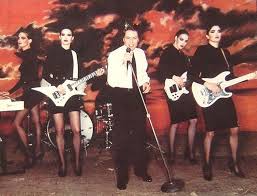The Difference Between Love and Love Addiction
Love addiction is often perceived to be “less serious” than other mental disorders i.e. compulsive sexual addictions, eating disorders or self-harm. Our culture has traditionally glorified love addiction with delusional happy endings like “happily ever after.” In fact, love addiction often gives roots to crime like suicides, murders, rapes and domestic violence. What is love addiction, and why are some people addicted to love? How can the problem be identified, and how can those addicted be helped?
Love addiction is often perceived to be “less serious” than other mental disorders i.e. compulsive sexual addictions, eating disorders or self-harm. Our culture has traditionally glorified love addiction with delusional happy endings like “happily ever after.” In fact, love addiction often gives roots to crime like suicides, murders, rapes and domestic violence. What is love addiction, and why are some people addicted to love? How can the problem be identified, and how can those addicted be helped?
The usual signs of love addiction are consumption, obsession, dependency, lack of intimacy and extreme demand for devotion. The above symptoms in conjunction with the overall emotional instability inevitably lead to isolation, heartache and loss. Of course, everybody encounters difficult persons or situations from time to time in their lives. However, when these situations become the norm, lived over and over again in some form or another, the diagnosis can be made. Like any addict, love and sex addicts do not learn from their mistakes. Unrealistic hopes, dreams and demands tend to shatter their relationships quickly and cause a pattern of disappointment and fear. As soon as possible after a breakup, the love addict will find another partner due to not being able to tolerate loneliness. And even in the rush of a new affair the troubled love or sex addict grows steadily more unhappy, fearful and bored and ends up pushing their partner away or looking outside the relationship for yet another new intensity or “love” experience.
Psychological imbalances and childhood attachment issues need professional counseling. Treatments and therapy for Love Addiction often include trauma work. It is necessary to free the person who is addicted to love and participate in a healthy relationship. Unlike sobriety from the substance abuse, love or sexual sobriety can be delineated as abstinence from any romantic or sexual activity that causes the person to feel shameful, hold secrets or which is illegal or abusive to others. An example of such a plan might be not dating anyone who is married or in another relationship, who is abusive or uncommunicative and not engaging in flirtations, intrigues or sexual seductions with strangers. It is advised that former love addicts should never quit therapy. If you discover you are in an addictive relationship, you may want to seek professional assistance. Counseling is available for those dealing directly or indirectly with this form of addiction.
Source: Free Articles from ArticlesFactory.com
ABOUT THE AUTHOR






